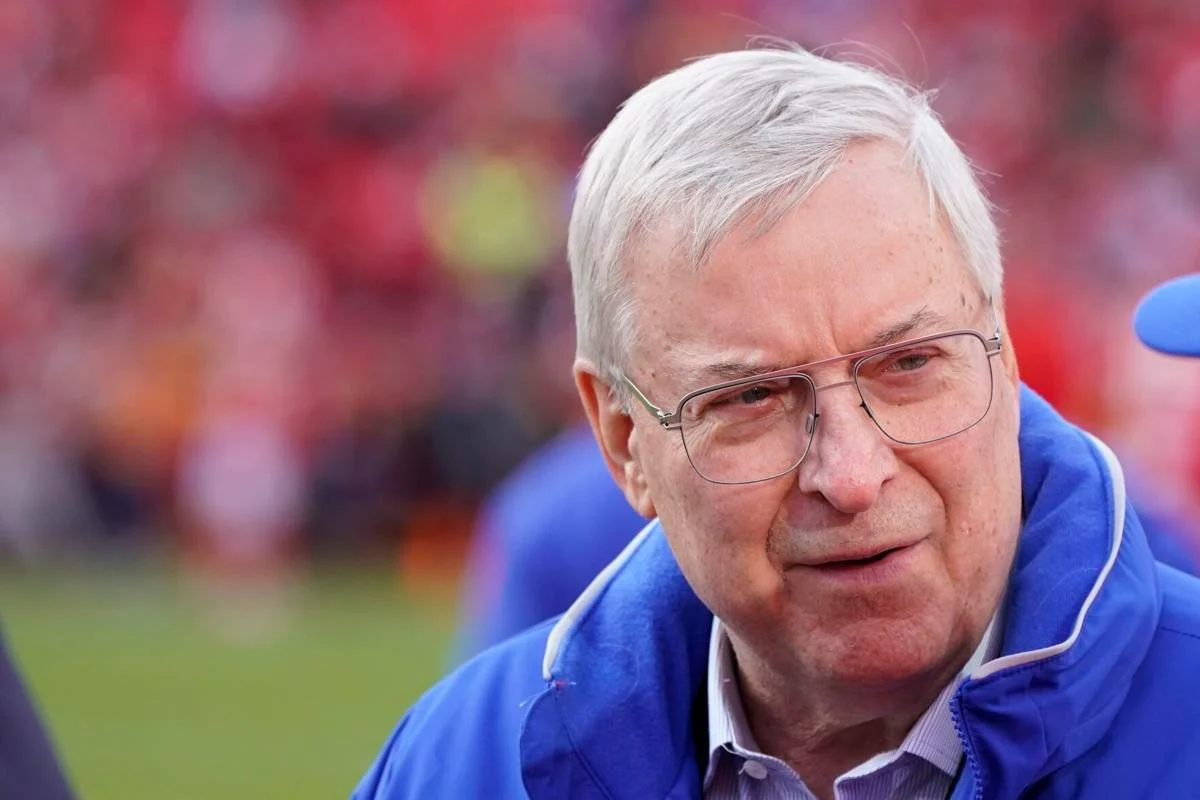In a surprising move within the NFL sphere, Buffalo Bills owner Terry Pegula has decided to put up a significant portion of the franchise for sale. This strategic decision aims to attract outside investment as the team navigates the financial waters of constructing a new stadium. Despite this shift, Pegula will retain his position as the controlling owner, ensuring stability within the team’s management.

Terry Pegula’s Strategic Sale to Fuel Growth
Pegula’s decision to sell 25 per cent of the Bills, a figure disclosed by Tim Graham of The Athletic, reflects a calculated move to manage the financial obligations associated with the development of their new venue, Highmark Stadium. The hiring of Allen & Company to oversee this transaction underscores the seriousness of Pegula’s intent to bring additional financial muscle to the table.
“The Pegula family’s commitment to Western New York and the Bills is unwavering,” stated a representative from the Bills. This reassurance is crucial for fans and stakeholders who might be concerned about the implications of this sale. It emphasizes that the ownership’s dedication to the team and the region remains steadfast, even as they seek external investors.

Financial Implications and Market Impact
Since acquiring the Bills in 2014 for $1.4 billion, Terry and Kim Pegula have seen the value of the team soar, with current estimates valuing the franchise at approximately $3.7 billion according to Forbes. This sharp increase in value is a testament to the team’s enhanced market position and broader economic factors influencing the sports industry.
So Terry Pegula is selling the wrong team. Lmao. pic.twitter.com/c6Sdb886ib
— Burke (@GoBills331997) April 20, 2024
The decision to sell a portion of the team is not just about immediate financial needs but also about positioning the Bills for future success. With the NFL continuously evolving, strategic financial planning is crucial for maintaining competitiveness both on and off the field.
Why This Sale Matters
For potential investors, the opportunity to acquire a stake in a franchise like the Buffalo Bills is enticing. It’s not merely a financial transaction but an entry into a community deeply connected to its football team. For the Pegulas, the sale represents a pragmatic approach to business, ensuring that the financial health of the team and its operations are secured, especially with the forthcoming costs associated with the new stadium project.
In conclusion, while Terry Pegula’s decision to sell a portion of the Bills might have come as a surprise, it is a forward-looking move that underscores a commitment to both the team’s and the region’s long-term prosperity. As this story unfolds, it will undoubtedly attract significant attention from both the sports and financial sectors, highlighting the ever-increasing intersection between sports, business, and community engagement.










